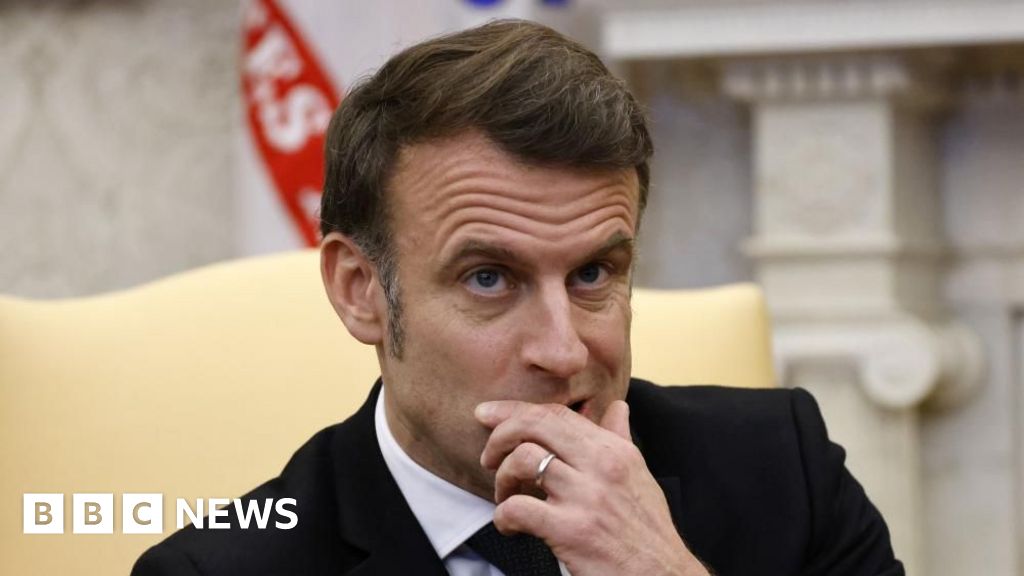
The relationship between Europe and the United States is undoubtedly facing significant challenges. Therefore, President Emmanuel Macron’s efforts to maintain dialogue during his recent visit to the White House can be viewed as a notable accomplishment.
Macron skillfully utilized praise and diplomacy while engaging with the US president during their joint news conference in the Oval Office, a strategy that many global leaders now regard as more effective than direct confrontation or criticism of Trump.
Successfully maneuvering through a potentially contentious visit, Macron managed to avoid making excessive concessions or revealing sensitive details.
He emphasized the shared desire for peace between the two nations and subtly corrected Trump on claims regarding European support for Ukraine. At the same time, he acknowledged the necessity for Europe to assume greater responsibility for its own security.
Significantly, Macron conceded that Trump was correct in his approach to re-establishing some form of dialogue with Vladimir Putin, a stark contrast to the longstanding positions upheld by London, Paris, and Berlin, which have focused on isolating the Russian president through sanctions against his government and industries.
Macron articulated his stance, stating, “There is good reason for President Trump to re-engage with President Putin,” indicating that the new administration represented “a big change.”
He also suggested that European nations, including France and the UK, could assume leadership roles in ensuring the security of Ukraine following a potential ceasefire, possibly through the deployment of air power and support troops away from active combat zones.
Nevertheless, Macron underscored the critical need for American support in these efforts.
Unfortunately, his discussions in the Oval Office did not yield a clear commitment for US backing. Additionally, there was no indication of any critical remarks regarding Putin from Trump during their meeting.
However, Macron succeeded in reinvigorating Europe’s voice in the dialogue, an outcome that he and fellow European leaders will find encouraging.
Nevertheless, it is evident that aspirations for rekindling the close rapport that Europe and the US have enjoyed since the end of World War II are not currently feasible.
This reality has prompted Macron to advocate for a more strategically independent Europe, exploring concepts related to collaborative European defense forces.
His belief in the necessity of Europe’s adaptation to the changing landscape reflects views shared by Friedrich Merz, who is poised to become Germany’s next chancellor.
Merz has previously stated that he perceives the US under Trump as indifferent to Europe’s stability and that the continent must seek greater autonomy in its security matters.
“My top priority will be to enhance Europe’s strength as swiftly as possible, enabling us, step by step, to attain true independence from the USA,” Merz emphasized.
However, it is crucial for France, the UK, and Germany to recognize that not all European states share a hostile perspective toward the US’s stance on Ukraine.
The emergence of far-right nationalist movements in Europe, particularly the AfD’s strong performance in recent German elections, indicates that a segment of the European populace is skeptical about the continent’s ongoing endorsement of Kyiv.
In the coming days, UK Prime Minister Sir Keir Starmer, who is working closely with Macron, will visit Washington to bolster their unified approach to Ukraine.
Much like Macron, he believes in the unique bonds shared between the UK and the US, which could facilitate constructive dialogue.
The challenge, however, lies in the fact that under Trump’s presidency, Washington currently promotes an agenda that allows little room for alternative viewpoints.
While the US has historically wielded significant influence to pursue its interests, Europe has often found itself on the less favorable side of negotiations. The transformation of this dynamic illustrates the gravity of the current rift in established alliances.









